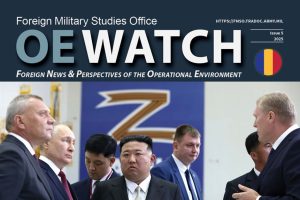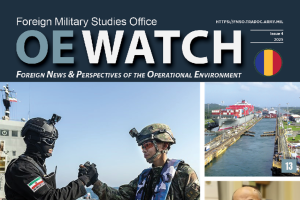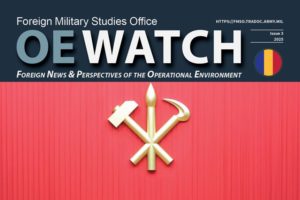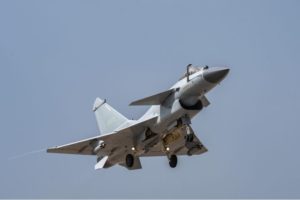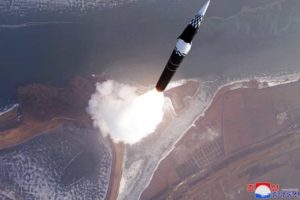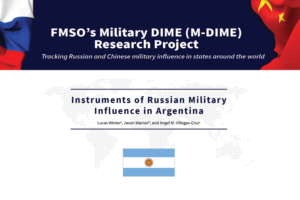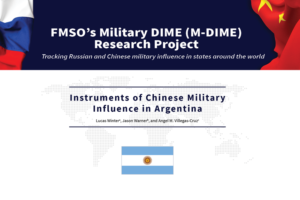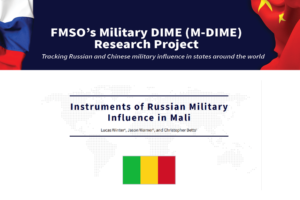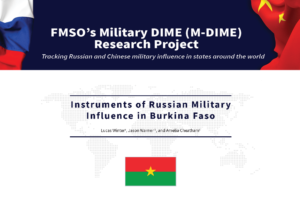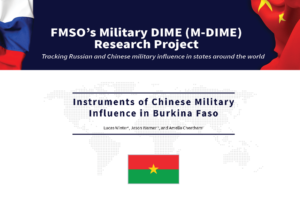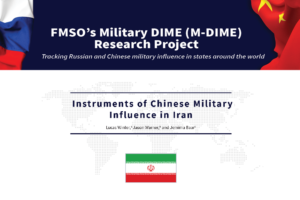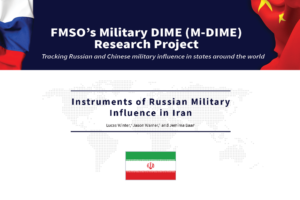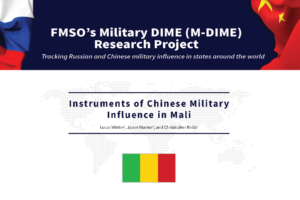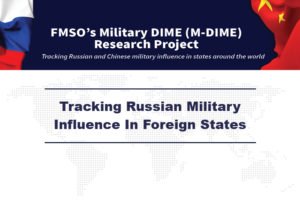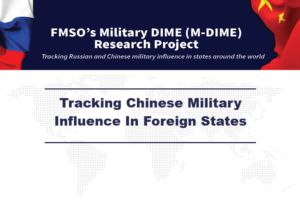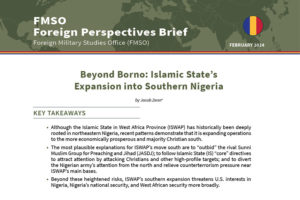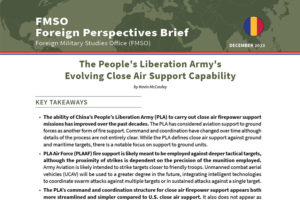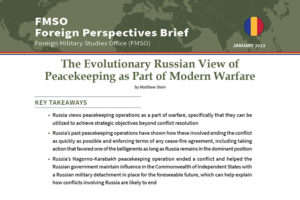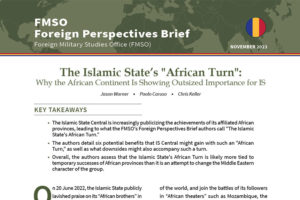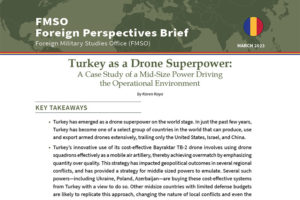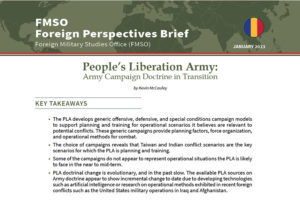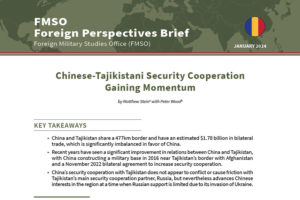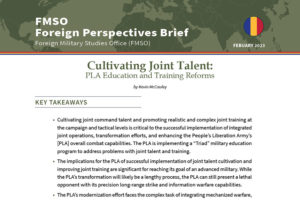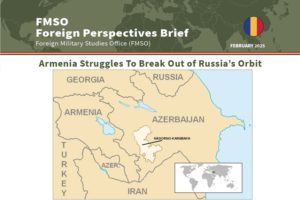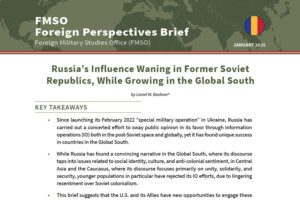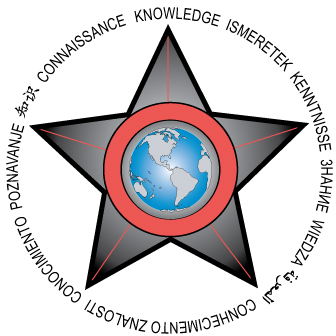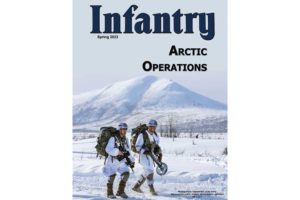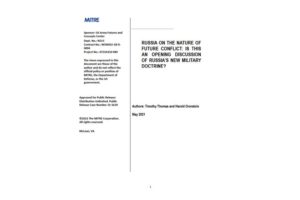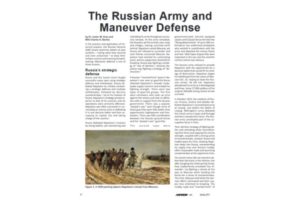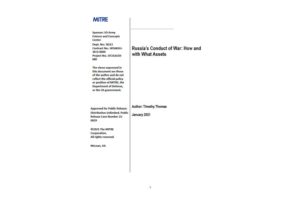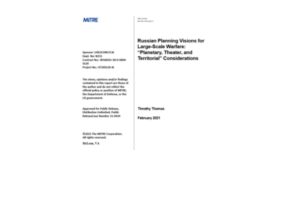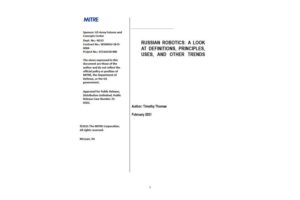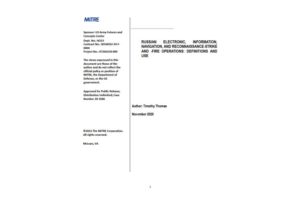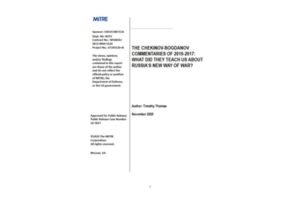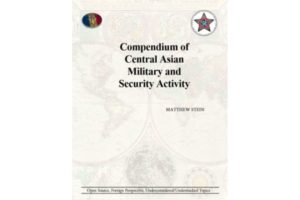FMSO/GCKN
Insights
& Research
ABOUT FMSO & GCKN
The Foreign Military Studies Office (FMSO) is located at Fort Leavenworth, KS and includes the Global Cultural Knowledge Network (GCKN).
Mission: Conduct open-source research on foreign perspectives of the operational environment (OE) in support of T2COM G2’s mandate to describe, deliver, and assess the conditions of the OE to inform DOTMLPF-P
FMSO routinely collaborates with academic institutions, subject matter experts, and joint, interagency, and foreign partners to produce OE products that inform T2COM, the US Army, and Joint Force. FMSO analysts come from backgrounds in the military, academia, government, and think tanks. FMSO provides subject matter expertise to directly support training exercises, wargames, professional military education (PME), doctrine development, and senior leader engagements.
FMSO maintains the Global Cultural Knowledge Network (GCKN). GCKN provides the Army with relevant sociocultural analysis, methodology, expertise, and training to contextualize the OE, revealing the root causes of conflict and instability. GCKN leverages elements within the Army, DOD, academia, and industry to conduct sociocultural research in support of PME, training exercises, and wargames, and informs Army DOTMLPF-P to increase the social science expertise within the US Army and Joint Force.
History
The Soviet Army Studies Office (SASO) (1986-1991) to the Foreign Military Studies Office FMSO (1991-Present)
FMSO’s predecessor was the U.S. Army’s Soviet Army Studies Office (SASO). Founded in 1986 and modeled on the U.K.’s Soviet Studies Research Center (SSRC), FMSO’s forebearer brought together a cohort of experienced U.S. Army Foreign Area Officers (FAOs) and academic experts to study the military capabilities, politics, and culture of the Soviet Union. These staff spoke Russian, had lived in the Soviet Union, and had previously published on Soviet topics.
SASO experts conducted open-source research based on materials including Soviet newspapers, books, training manuals, and archives, and published their findings in peer-reviewed academic and military journals. SASO also worked with senior Army leadership and the National Training Center (NTC) at a critical time of change to help the United States more effectively train for a potential war and an uncertain peace. SASO experts further helped build trust during tense times, conducting many personal exchanges and visits to the Soviet Union as well as hosting visiting Soviet Generals, many of whom would soon find themselves in the service of entirely different countries. SASO experts’ deep understanding of the Soviet system also allowed them to provide warning of the impending dissolution of the Soviet Union.
SASO was rebranded as the Foreign Military Studies Office in 1991 after the Soviet Union fell. FMSO’s mission expanded beyond SASO’s focus on Soviet and European affairs to include tracking global developments. A new cohort of regional subject matter experts and linguists joined the team. FMSO established itself as a leader in providing key insights about China, Africa, the Middle East, and Latin America. While FMSO retained SASO’s focus on military strategy, operations, and tactics, it also began to produce research on newer areas such as cybersecurity, insurgency, terrorism, natural resources, and border conflicts and trans-border crime.
Explore PRODUCTS
OE Watch
Chinese Military Exercises Highlight Improvements in Joint Operations
North Korean Media Stays Quiet Despite Global Concerns
M-DIME
M-DIME | Instruments of Russian Military Influence in Argentina
M-DIME | Instruments of Chinese Military Influence in Argentina
M-DIME | Russian Military Influence in Mali
M-DIME | Instruments of Russian Military Influence in Burkina Faso
M-DIME | Instruments of Chinese Military Influence in Burkina Faso
M-DIME | Instruments of Chinese Military Influence in Iran
M-DIME | Instruments of Russian Military Influence in Iran
M-DIME | Chinese military influence in Mali
FMSO: Military DIME (M-DIME) Research Project: Tracking Russian military influence in foreign states
FMSO: Military DIME (M-DIME) Research Project: Tracking Chinese military influence in foreign states
Foreign Perspective Briefs
Beyond Borno: Islamic State’s Expansion into Southern Nigeria
The People’s Liberation Army’s Evolving Close Air Support Capability
The Evolutionary Russian View of Peacekeeping as Part of Modern Warfare
The Islamic State’s “African Turn”
People’s Liberation Army: Army Campaign Doctrine in Transition
Chinese-Tajikistani Security Cooperation Gaining Momentum
Cultivating Joint Talent: PLA Education and Training Reforms
Armenia Struggles To Break Out of Russia’s Orbit
Russia’s Influence Waning in Former Soviet Republics, While Growing in the Global South
FMSO Books
India Takes a Step Away from the Russian Defense Industry
“The Russian Army and Maneuver Defense” by Les Grau and Charles Bartles (May 2021)
“Russia’s Conduct of War: How and with What Assets” by Timothy Thomas (2021-04-13)
“Compendium of Central Asian Military and Security Activity v8” by Matthew Stein (2021-01-20)







